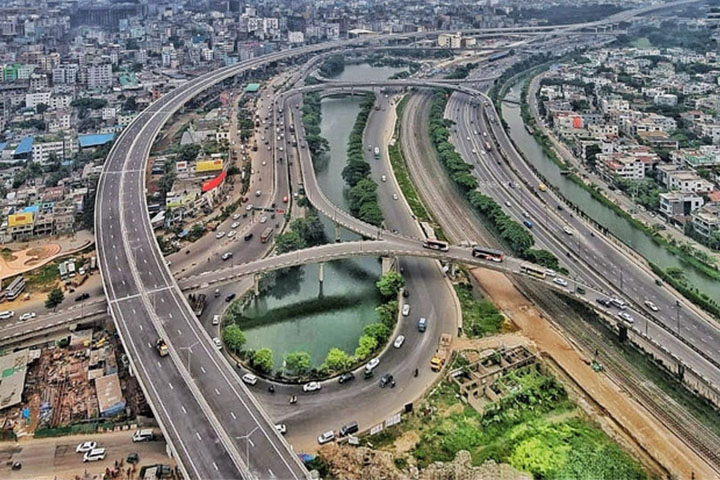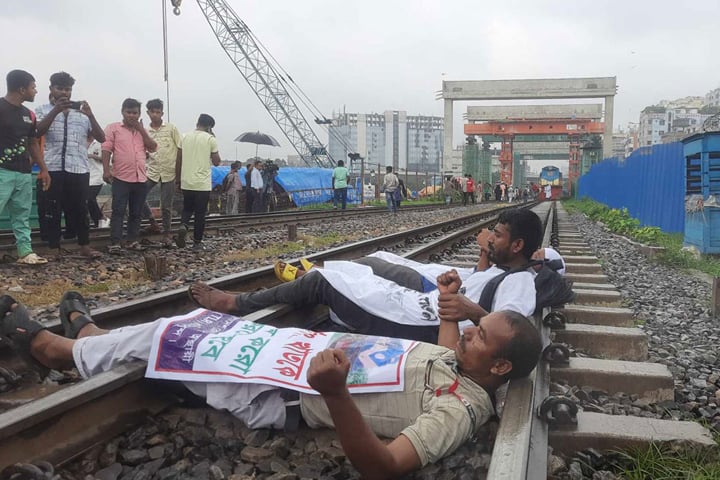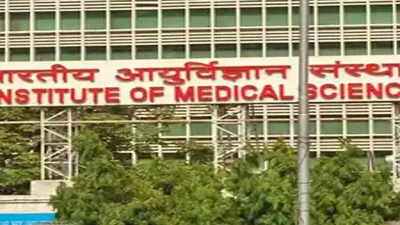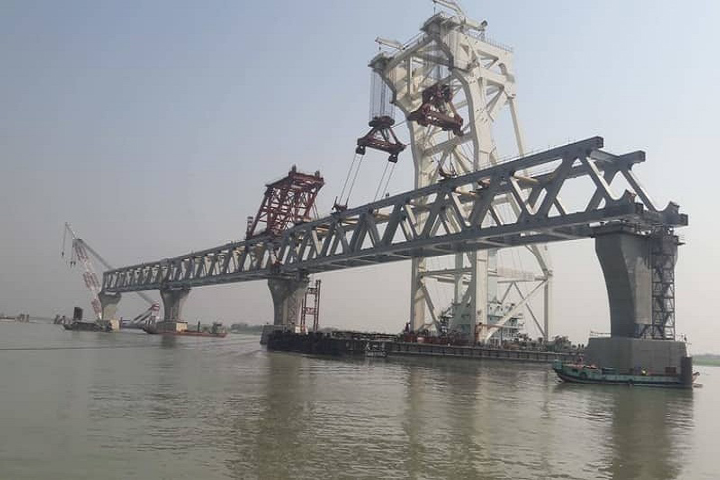Elevated Expressway being inaugurated today
Prime Minister Sheikh Hasina will inaugurate the much-awaited elevated expressway's Hazrat Shahjalal International Airport-Farmgate section for traffic today.
"The Prime Minister will inaugurate the expressway at a programme to be held at the old trade fair ground at Sher-e-Bangla Nagar here at 3.30pm tomorrow," project director of Dhaka Elevated Expressway AHMS Akter said this.
The airport-Farmgate section will be opened to traffic the next day of the inauguration, the official added.
He said the length of this section is about 11.5 km. There are 15 ramps for boarding. Out of these, two ramps at Banani and Mohakhali will remain closed for the time being. The maximum speed limit for traffic on the expressway will be 60 km per hour.
Three wheelers, bicycles and pedestrians will not be allowed to move on the expressway, while motorbikes cannot run on it right now.
Earlier, the road transport and bridges ministry fixed the toll rates for the Dhaka Elevated Expressway's Hazrat Shahjalal International Airport-Farmgate section ranging from Taka 80 to Taka 400.
Under category 1, the toll rate for car, taxi, jeep, sports utility vehicle, microbus (under 16 seats) and light truck (under 3 tonnes) for crossing the airport-Farmgate section from any point is Taka 80.
The toll rate for medium truck (up to six wheels) for crossing the route from any point is Taka 320 under category 2.
Under category 3, the toll rate for truck (over six wheels) for crossing the route from any point is Taka 400. The toll rate for any bus (16 seated or above) for crossing the route from any point is Taka 160 under category 4.
The total length of the elevated expressway is 46.73km covering Kawla, Kuril, Banani, Mohakhali, Tejgaon, Moghbazar, Kamalapur, Sayedabad, Jatrabari to Kutubkhali on the Dhaka-Chattogram highway.
Initially, the speed limit on the expressway will be 60km per hour and vehicles need 10 minutes to travel the 11km distance from the HSIA to Farmgate.
With an 11.5km mainline and 11km ramp, the length of the part will be 22.5km. Initially, 13 out of 15 ramps in this part will be opened. The ramps at Banani and Mohakhali will be opened once their construction is complete.
The total expenditure of the project is estimated at Taka 8,940 crore, while the viability gap funding is Taka 2,413 crore, which will be provided by Bangladesh government.
The First Dhaka Elevated Expressway (FDEE) Company Ltd is the investor company. Italian Thai Development Public Company Ltd has 51 percent shares, China Shandong International Economic and Technical Co-operation Group (CSI) holds 34 percent while Sinohydro Corporation Ltd 15 percent shares.
As per the project, the first contract was signed on January 19, 2011 and the reviewed agreement was signed December 15, 2013 and the project completion period was July 2011-June 2024.
Construction of the second phase Banani Railway Station to Moghbazar Railway Crossing is progressing fast.
In the last 15 years, several infrastructure projects have been initiated in Bangladesh. Considering the size, budget, and economic impact, many of these projects have been termed mega-projects.
The government has also identified a few of them as fast-track projects. Among these, the Padma Multipurpose Bridge, Bangladesh's first metro rail project MRT Line-6 and Chandra-Elenga four-lane highway were completed.
Bangabandhu Sheikh Mujibur Rahman Tunnel, the first and longest underwater road tunnel in South Asia, is expected to be ready for traffic soon.
The other projects-Padma bridge rail link, Chattogram-Cox's Bazar rail link, Rooppur nuclear power plant, Matarbari 1200MW coal-fired power plant, the Payra deep sea port, Bangabandhu Sheikh Mujibur Rahman Railway Bridge on the river Jamuna are extremely crucial to the country's economic growth and hence the key focus of the government now is their timely completion.
After the Awami League government came to power in 2009, it took up several monumental development projects with the view to transforming the country's communication, transport and power infrastructure.
Prime Minister Sheikh Hasina's government has introduced modern transport system Dhaka Metro Rail partially and opened the Padma Multipurpose Bridge and other mega projects.
02 Sep 2023,15:17


















 Live Tv
Live Tv









